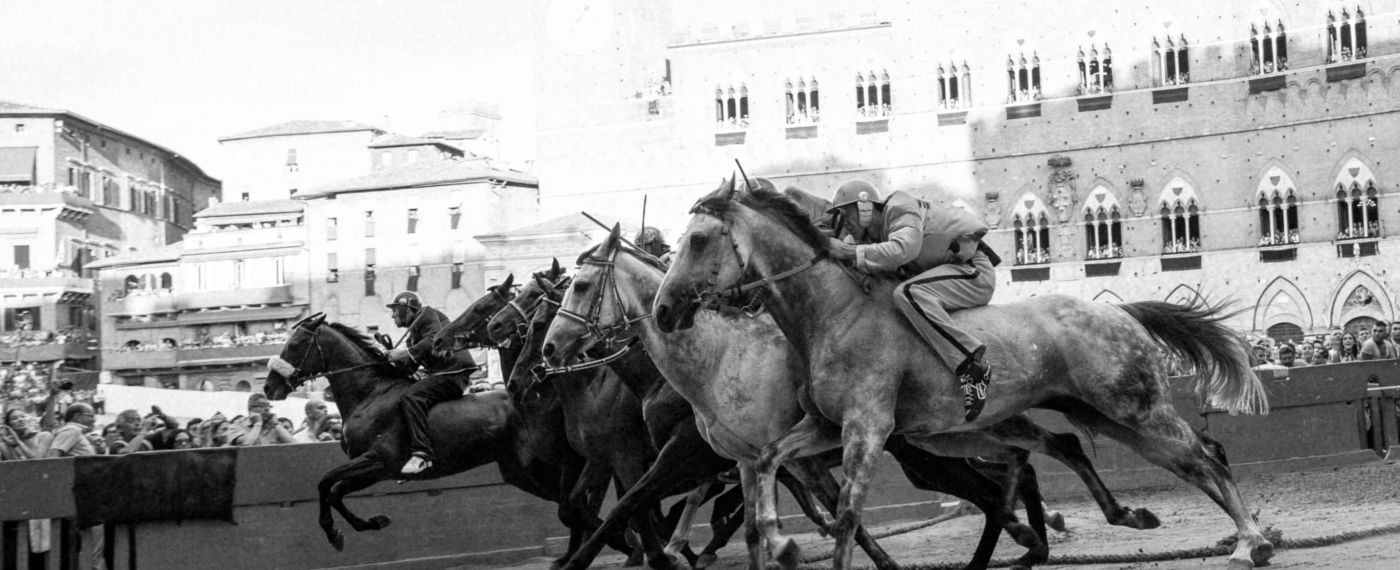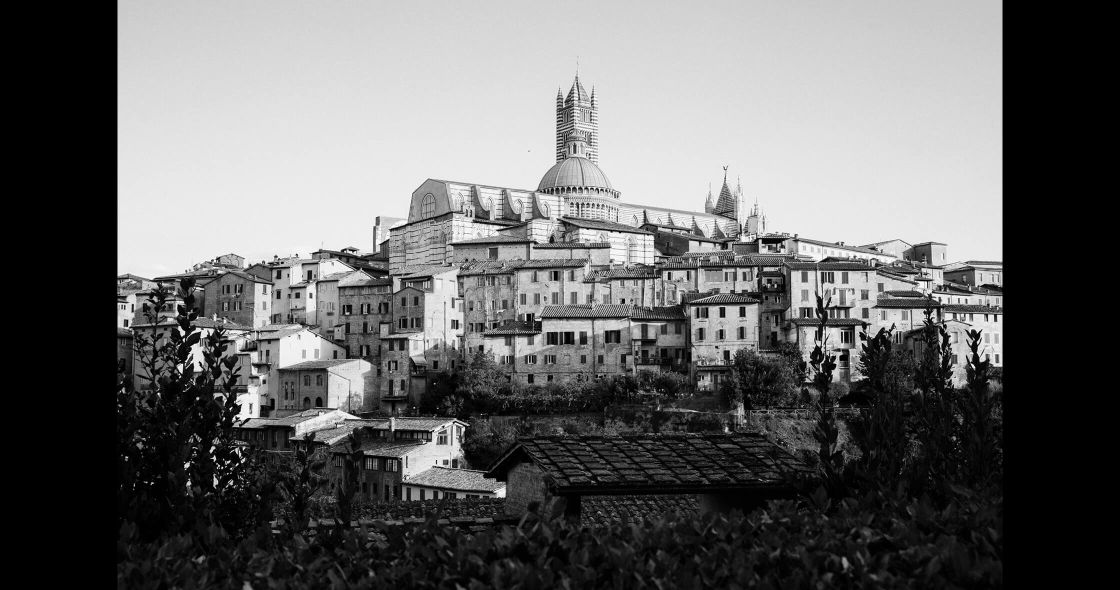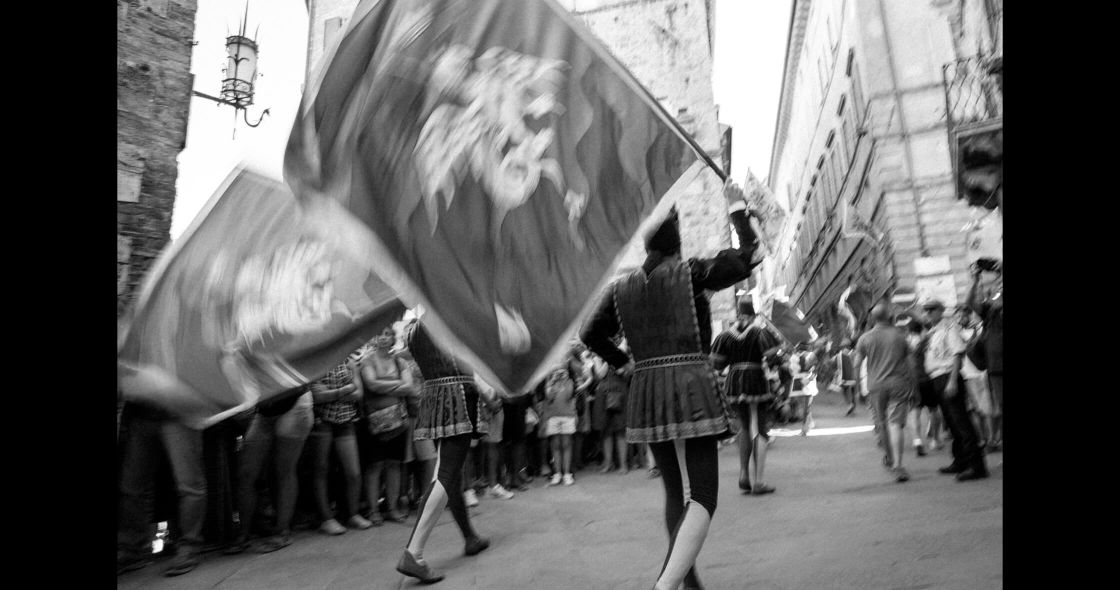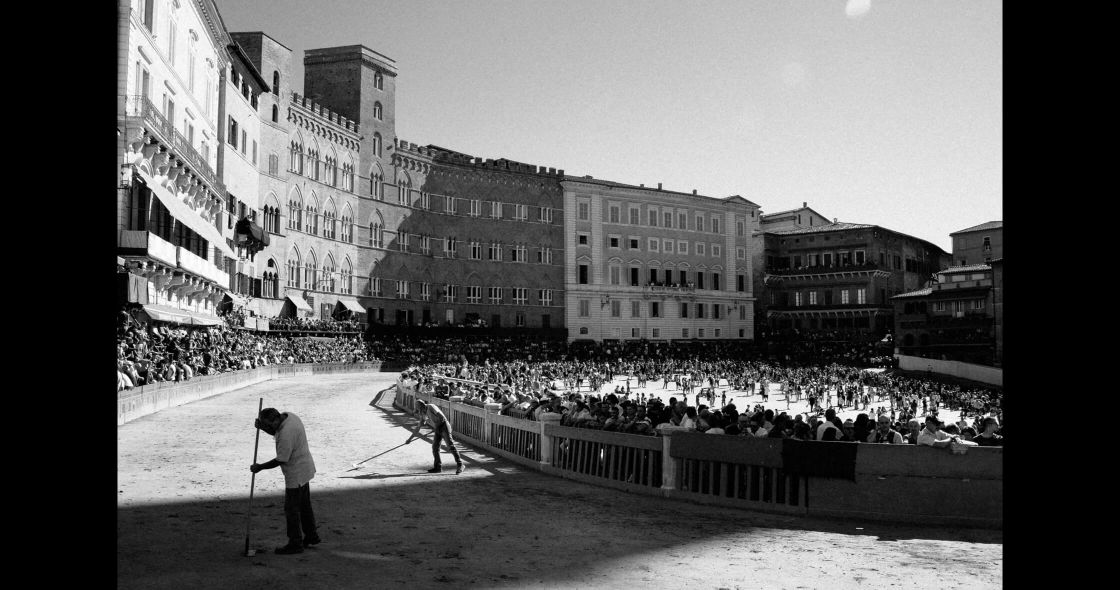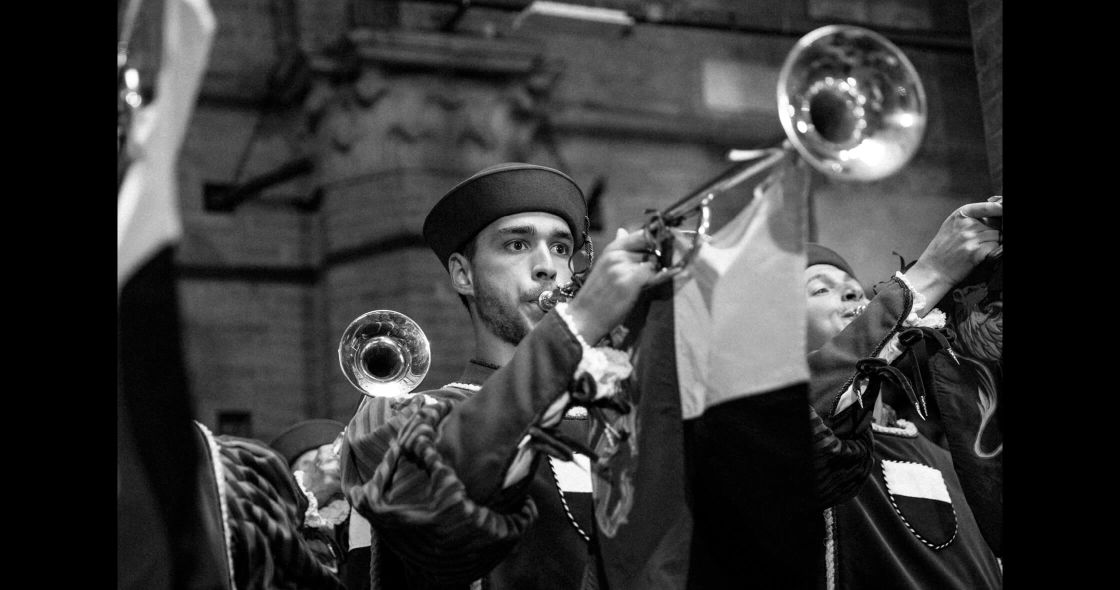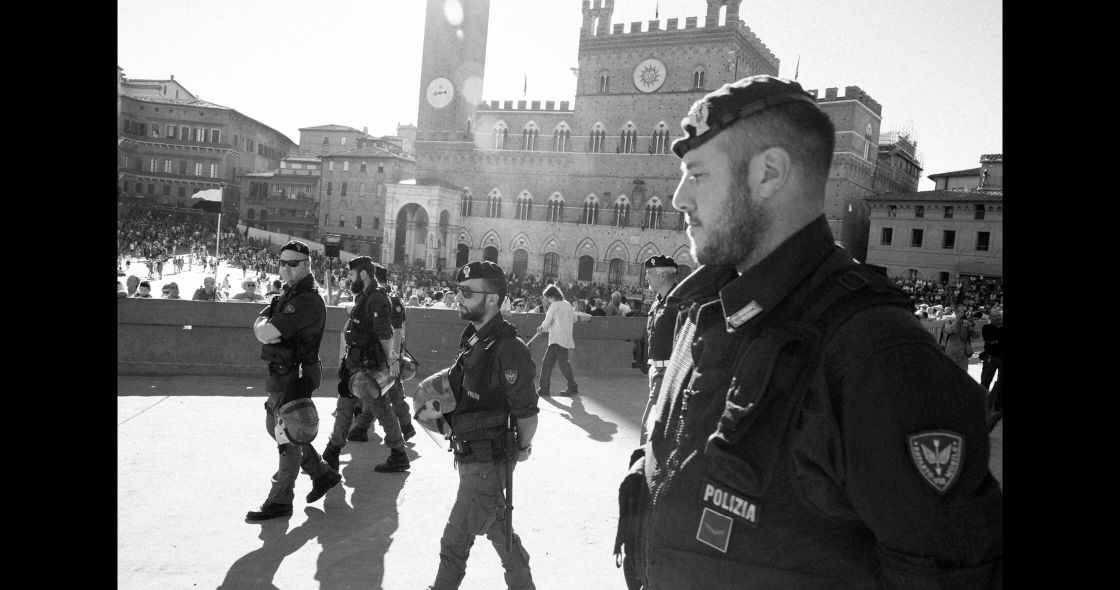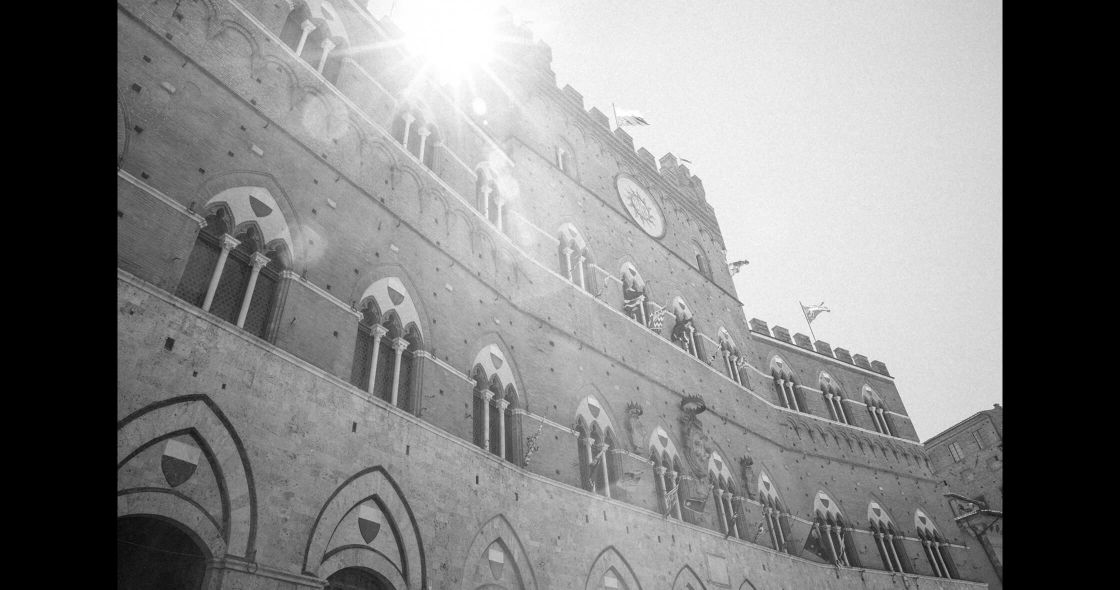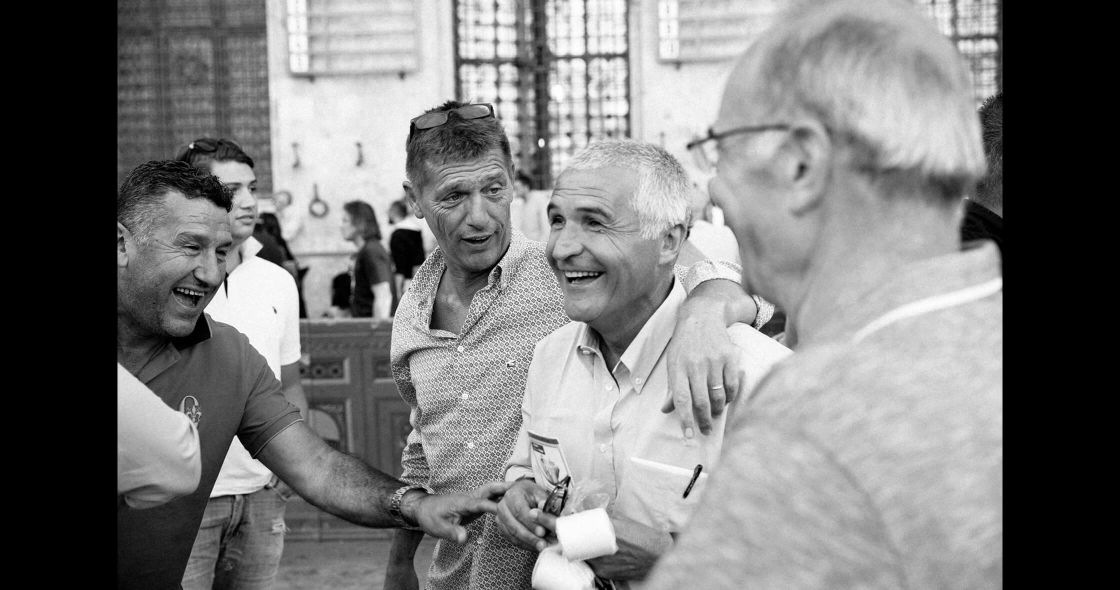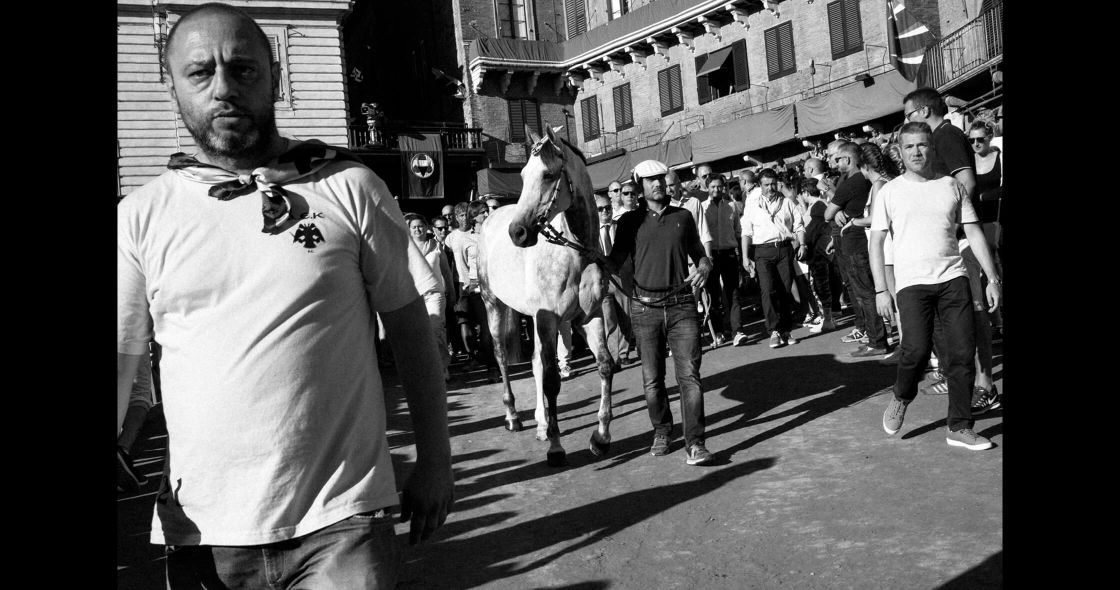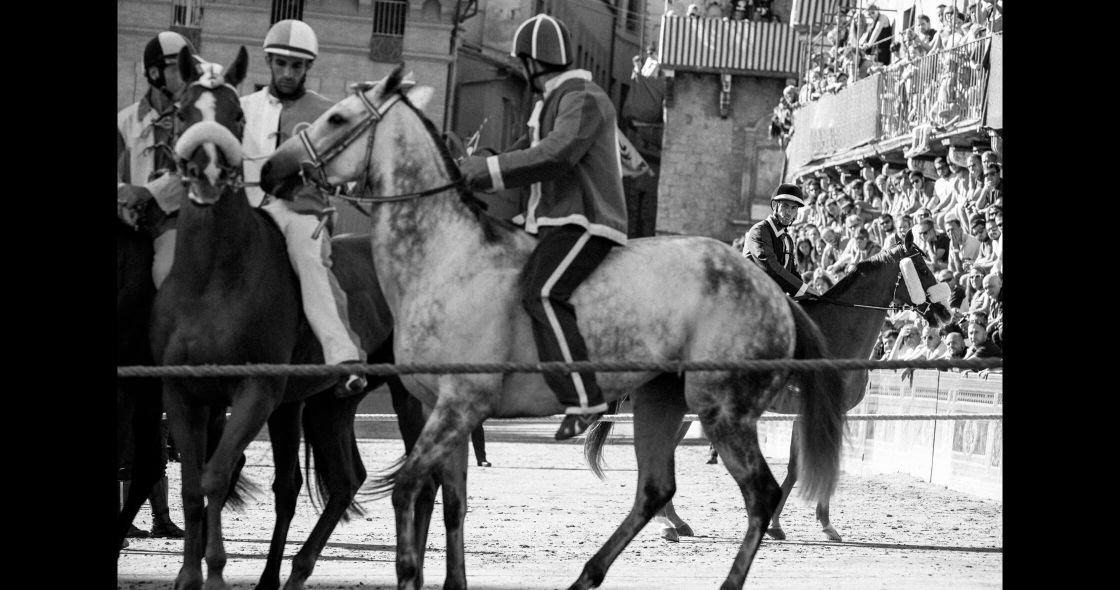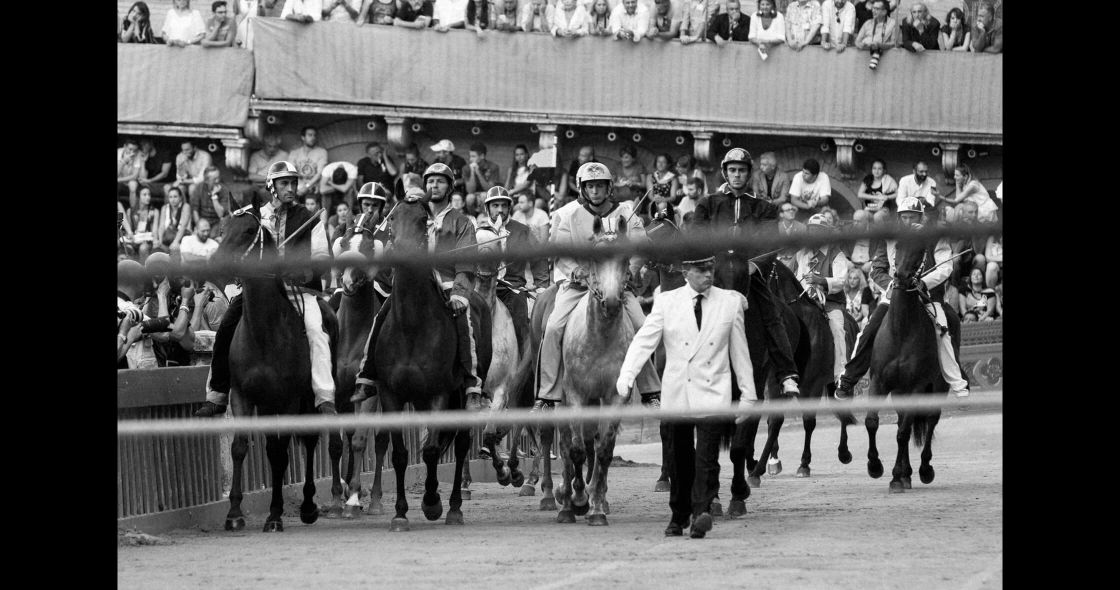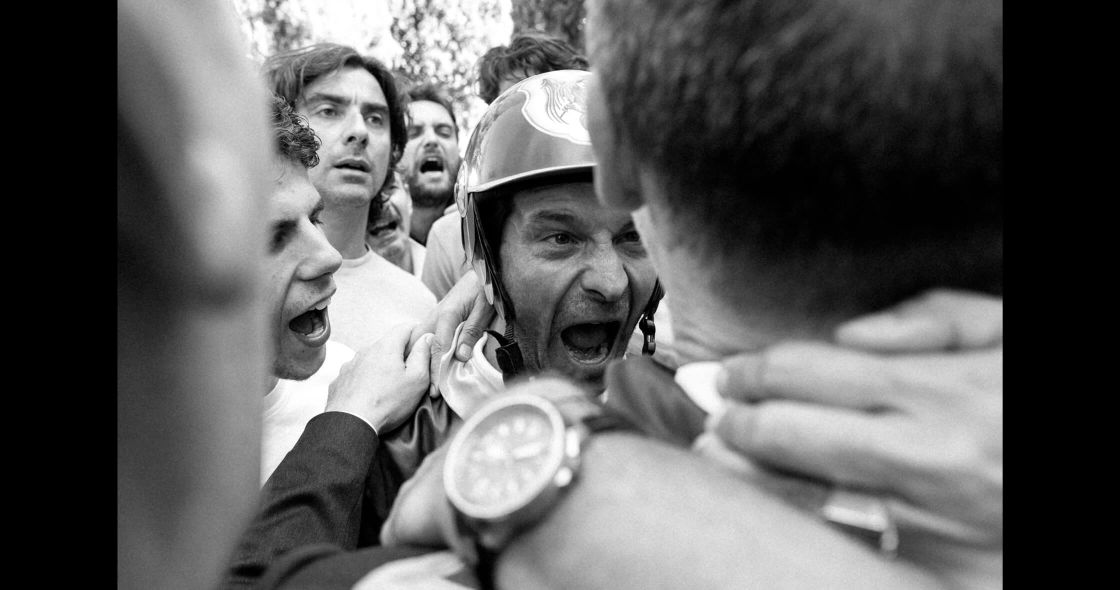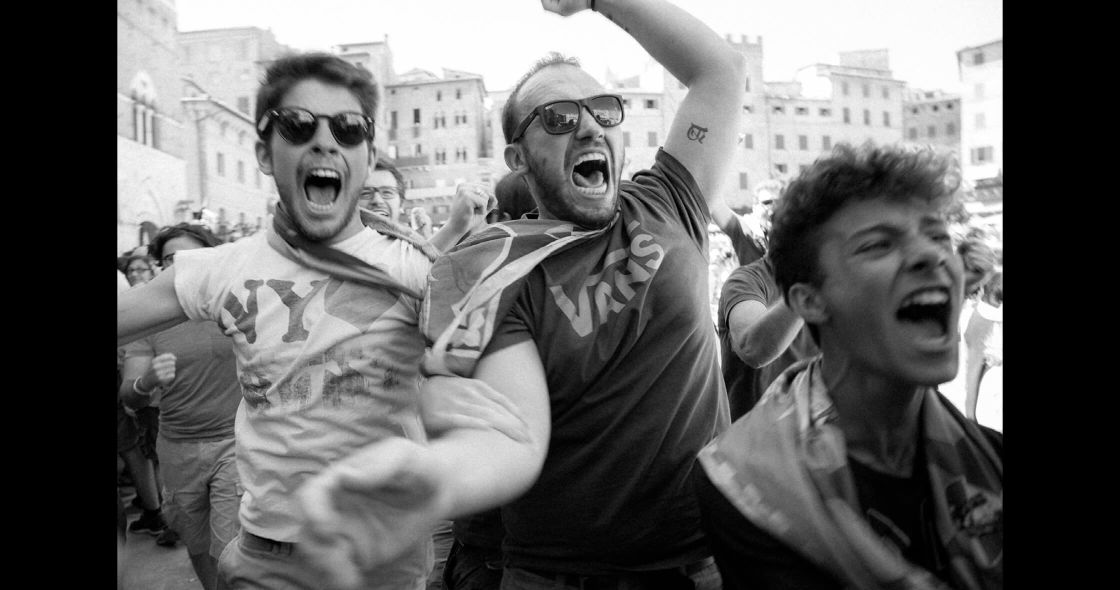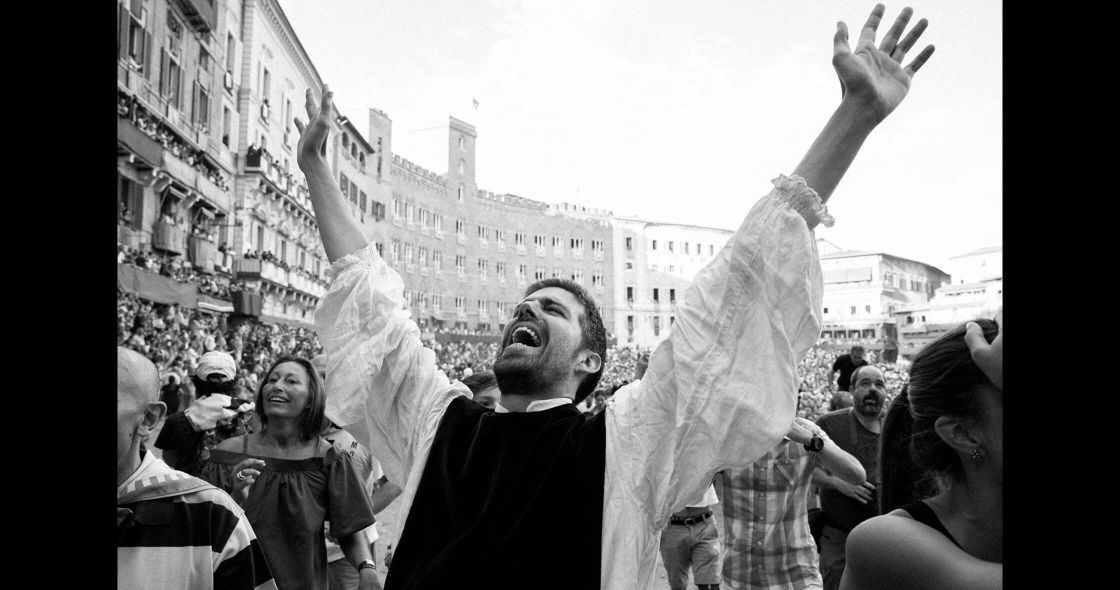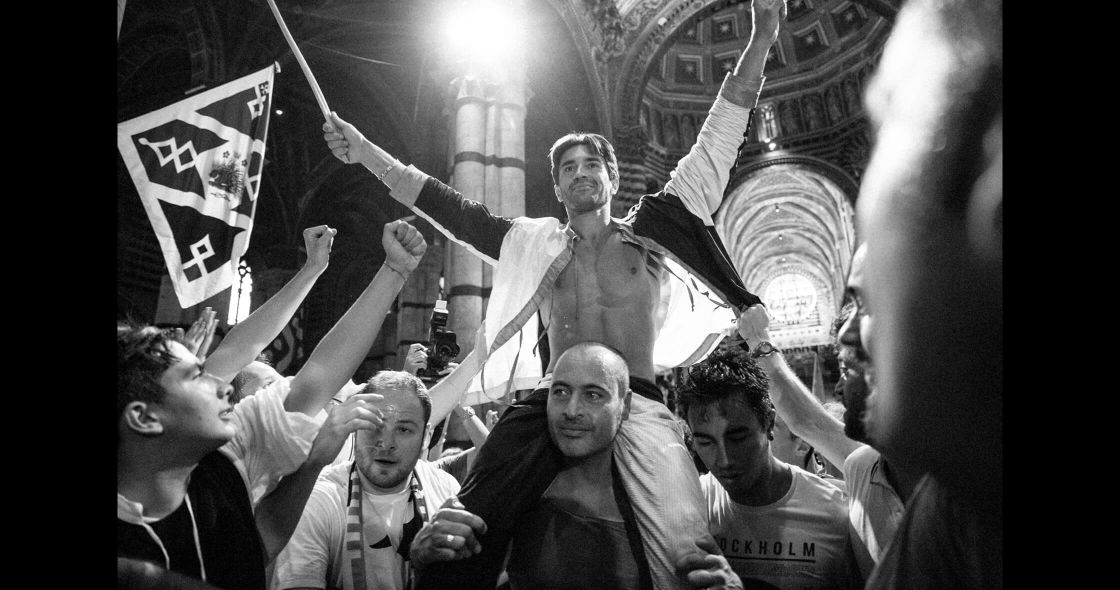
Photographer James Cannon has experienced one of the world’s greatest horse races closer to the action than almost anyone else. Here, he shares his striking images of Siena’s Palio — and the experience through his eyes.

The Palio di Siena is one of Tuscany’s most extraordinary events, held twice each year in July and August, in honour of the Virgin Mary. It’s the oldest horse race in the world, ridden bareback by jockeys around a makeshift course set up in Siena’s Piazza del Campo. Each horse represents a Sienese district, or contrada. It’s fast-paced and thrilling, a rush of breakneck turns and sly competition, often lasting fewer than two minutes. Jockeys often fall; but unlike conventional horse racing, a horse doesn’t need a rider to win the race. As a photographer I’m drawn to community, and how sport can bring people together. I love the challenge of capturing all the sound, energy, emotion and competition of a real-life experience in a still image. The Palio was my ultimate lure.
I spent time with the people of the Drago contrada, one of the districts competing in the Palio. What must take months in the planning — and a whole year of district savings — condenses into a week’s frenetic activity before the race. The horses are assigned to each contrada by ballot, drawn just four days before the event. The jockeys meet their horses. Strategies are hammered out over scrub-top tables and bottles of local wine. Temporary alliances are made between the competitors — agreements to sabotage other jockeys’ races. Money changes hands as bets are placed. Feasts are served for family and friends. The streets are garlanded with banners emblazoned with each contrada’s colours. Every contrada wants the glory of a win. The Palio is many things, but it’s not lighthearted; the passions are real, the rivalries intense.


The day of the big race begins with a religious mass for the jockeys. A blessing ceremony is held for each contrada’s horse before a hundreds-strong parade in full costume winds its way through the city. The crowds filter into the Piazza del Campo, lining its edges. There are tourists, of course, but they’re far outnumbered by locals. Young people have come home to celebrate. Ancient nonnas are muttering to their neighbours and gesturing with anticipation. I take my place on the track, nothing but a flimsy rope between me and what will soon be chaos.

The horses are assigned to each contrada by ballot, drawn just four days before the event. The jockeys meet their horses. Strategies are hammered out over scrub-top tables and bottles of local wine.
Then, the moment everyone’s been waiting for; firecrackers signalling the entrance of the horses into the square. The race begins at a gallop, the anthems of the crowd punctuated by pounding hooves. The air is heavy with the lingering heat of Siena’s summer sun and the frenzy of the horses and their riders. I can hardly breathe, scarcely blink in case I miss a second of the action. Round the square they race, once, twice, three times. As the race hurtles to a close the spectators rush forwards, thronging the winning horse and rider. A silk banner is presented as a trophy, before the victors are borne away to the Duomo to give thanks to the Virgin Mary and carry on the festivities. The Drago contrada haven’t won this time, but they’re cheering as loud as anyone else, the shouts of celebration merging into a city-wide roar.
There’s a heart-pounding authenticity to the spectacle; it’s the camaraderie, the coarseness of competition countered by a strong sense of togetherness. Afterwards, I fight a lingering sense of disbelief; my every sense has been assaulted. I’ve been woken up and shaken up. My ears ring with cheers, my own among them. A week later, the Piazza del Campo is tidy. The hoofprints have faded. The cafés are open and people are drinking aperitivos in the evening light. Siena’s hills are quiet once again, lit by a Tuscan sunset.


The air is heavy with the lingering heat of Siena’s summer sun and the frenzy of the horses and their riders. I can hardly breathe, scarcely blink in case I miss a second of the action.


Jockeys often fall; but unlike conventional horse racing, a horse doesn’t need a rider to win the race.

The Palio is many things, but it’s not lighthearted; the passions are real, the rivalries intense.

Afterwards, I fight a lingering sense of disbelief; my every sense has been assaulted. I’ve been woken up and shaken up.

Experience Siena’s Palio for yourself, with a summer stay at COMO Castello del Nero.
